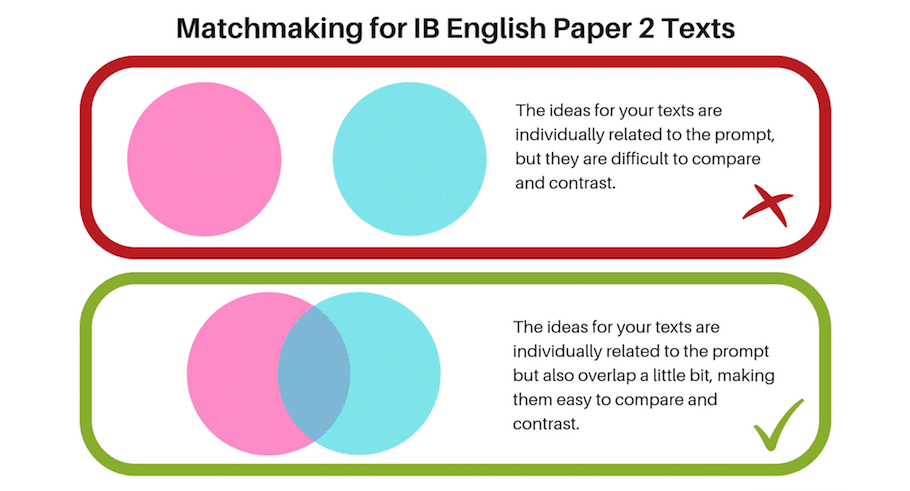This guide will explain IB English Paper 2 and what you need to ace the exam come May or November, when the IB Gods throw you this (seemingly) insurmountable task.
If you don't know all about Paper 1 already, do check out LitLearn's amazing guide for IB English Paper 1. Paper 1 is all about on-the-spot thinking and adrenaline-pumping analysis. What about Paper 2?
Well, IB English Paper 2 is all of those things, plus extensive preparation. But don't fret! I survived Paper 2, and so have many others before you. All you need is a couple sprinkles of guidance from a seasoned Paper 2 veteran (ahem).
Meet your instructor Jackson Huang, Founder of LitLearn. His mission is to make IB English as pain-free as possible with fun, practical lessons. Jackson scored an IB45 and was accepted to Harvard, Amherst, Williams Colleges, and full scholarships to University of Melbourne & Queensland.

What is IB English Paper 2?
You're in the exam room. You stare at the page and wipe the sweat from your forehead and try to focus on the words on the page:
"We are all prisoners of ourselves.” Discuss how the sense of imprisonment shapes the meaning and the effect on the audience of at least two texts you have studied."
A Paper 2 exam consists of four of these prompts. From these options, you choose one prompt and write a 1000 to 1300-word essay on it.
How long do you get? 1 hour 45 minutes for both Standard Level (SL) and Higher Level (HL) students.
In these 1000 to 1300 words, your task is to write a comparative essay, which — you guessed it — means comparing similarities and contrasting differences between the texts you've studied in class for Paper 2 (i.e., poems, novels, plays or short stories) .
Now that you understand what a Paper 2 essay involves, let's jump into how to properly answer one of these IB English Paper 2 prompts.
How to answer a Paper 2 Question
Let's stick with the above example about the theme of “imprisonment”.
First, see that philosophical quote at the start of the prompt? It's there to spark ideas, to get the juices flowing in your brain. You don't have to refer to it directly unless the questions explicitly asks you to do so. So the take-away message here is to not be ‘imprisoned' by the philosophical quotes at the start of the prompts.
Second, notice the command term “discuss”. This is usually replaced by words like “evaluate”, “analyse”, “examine”. Don't worry about it too much: it doesn't mean anything too important, because at the end of the day you still have to analyse, you still have to compare, and you still have to contrast.
The key of the prompt
The part after the command term is the most important part of the prompt:
"[…] how the sense of imprisonment shapes the meaning and the effect on the audience […]"
Here the “sense of imprisonment” — the key of the prompt — tells us exactly what we need to write about in the essay.
Can you find the key in this next prompt?
"Compare and contrast the effectiveness of the use of irony in two or more texts you have studied."
Notice the command term “compare and contrast” and the important part after it. The key of this prompt is “the use of irony“.
Get comfy with morphing stuff
More often than not, our texts do not contain anything explicitly related to the prompt's key, say, the theme of “imprisonment”.
Pay attention to this next paragraph…
The secret to scoring a 7 in IB English Paper 2 is to get very comfortable with bending, morphing and twisting your texts and/or the prompt so that they are as compatible with each other as possible.
There are two ways that this can be achieved:
1. Morphing existing ideas in your own texts to fit the prompt
While Jane Sherwood's (some random character) nostalgia in your Incredible Text 1 may not directly relate to “imprisonment”, you could twist the character's nostalgia into the idea that emotions can trap or “imprison” an individual in a treasured memory or a past experience.
Nostalgia and imprisonment seem like unlikely brothers at first, but with a bit of justification they look almost like identical twins.
2. Redefining the prompt (reasonably)
The key of the prompt can often be vague. For example, there was a real IB exam prompt that asked whether “male characters were more interesting than female characters.” What does “interesting” even mean?
The IB Gods are inviting you to constrain the topic in a way that works for your texts specifically. You could write in the first sentence of your introduction:
"Interest, an important part of dramatic works, is often generated by emotional conflict and the subsequent creation of tension." "
Here I have restricted the broad topic of “interesting” to the more clearly-defined topic of “emotional conflict” because this redefinition works well for the texts I've studied for IB English Paper 2. You should do the same.
In reality, you have to morph both your texts and the prompt in order to reach a snug fit between the two. Getting to this point, which all happens during the planning stage, is the most difficult part of the Paper 2 process because it requires you to know your texts so well that you can apply the ideas in your texts to different situations.
How many texts to compare and contrast?
Before we continue with this introductory guide, we need to address the age-old question of how many texts should we compare and contrast in an IB English Paper 2 comparative essay?
In the old syllabus, you had the choice to compare and contrast up to three texts.
Luckily, in the new syllabus (First assessment 2021), you don't have to make a choice: the IB requires you to compare and contrast just two texts. One less decision for you to make!
However, you are still recommended to prepare three texts, so that you have 3 possible combinations of texts to answer your prompts (Texts 1 & 2, Texts 1 & 3 and Texts 2 & 3).
Now that we agree on how many texts to compare and contrast, let's see how we can make the texts work together.
Choosing the best points across your two texts
There's an easy way, and there's a hard way.
If you want a score of 5 or below, you can simply think of two points to answer the prompt for Text 1 and two other points to answer the prompt for Text 2. Then, slap them together into different paragraphs, regurgitate some shallow comparison and contrast, and call it a comparative essay. That doesn't sound very sophisticated, does it?
On the other hand, if you want a score of 6 or 7, you'll need to use a lot more brainpower and insight. The points that you choose for your two texts are very important, in terms of how the points relate to each other and to the prompt. The points need to have enough overlaps that similarities can be analysed, but not too much similarity because you also want to contrast differences.

What ends up happening is you enter an algorithm — a set of steps, sort of like a recipe — where you repeatedly attempt to find good points for the prompt, gradually morphing them while re-defining the prompt itself, until you reach a good plan for your Paper 2 essay.
What does a good plan generally look like?
- Your re-defined prompt has not strayed far, or at all, from the original prompt.
- The points for Text 1 fit well with the prompt.
- The points for Text 2 fit well with the prompt as well as the points your chose for Text 1.
The million dollar question is: How do we get to this optimum stage where the prompts and the texts and married so harmoniously? The answer is brainstorming.
In these Pro lessons from our study guide, we go into detail about the exact strategies for brainstorming for Paper 2 under exam conditions, choosing the right Paper 2 essay structure, and writing a strong Paper 2 thesis.
How to best prepare for Paper 2
We've talked a lot about the skills and questions necessary to tackle an IB English Paper 2 prompt, but all of that happens during the exam itself. What can we do before Paper 2 to put ourselves in the best position?
- (Really) understanding your text
- Choosing great quotes for your Paper 2 (covered in a later lesson)
- Practice past Paper 2 exams
Let's go through Steps 1 and 3.
Understanding your text
IB English Paper 2 tests skills that require a deep understanding. First, to compare and contrast effectively, you need to know your texts well enough that you can find similarities and differences in the micro-details and in the macro themes, in the characters and in the techniques. Second, in order to adapt the ideas in your text to the prompt, you need to know how far you can stretch those ideas while maintaining their validity.
Without a deep understanding, you're dead in the water.
In our Paper 2 Preparation guide, we tell you exactly how to prepare your Paper 2 knowledge and notes, down to the specific questions you should be able to answer. The preparation is organized into Level 1 to Level 4 to give you a structured study roadmap for Paper 2. That way you don't get overwhelmed.
Practising Past Paper 2s
The most challenging part of Paper 2 is bringing together three aspects:
- The quotes you've memorised
- Your analysis skills
- Your ability to adapt the quotes and ideas to a new prompt that you've never, ever encountered before
Grabbing that 7 in IB English Paper 2 requires that you are solid on all three fronts. You cannot just practice each of these aspects individually. Practising to plan and write Paper 2 responses ensures that you practise this core trifecta of skills together, all at once.
Practising past Paper 2s was the core of my IB English Paper 2 preparation schedule. It helped me to memorise quotes, learn which quotes are better than others, and learn certain pairs of themes, characters and techniques that work well in my texts for comparison and contrast.
By practising Paper 2s extensively, you increase your awareness of what works (and what doesn't) for your texts. Hence, the main thing you have to worry about on the day of your exam is the prompt itself--the only variable that you cannot control.
In the Paper 2 study guide, we have an exemplar IB English Paper 2 essay from a past exam: See the exemplar essay.
Paper 2
Pro members only


